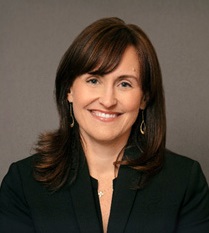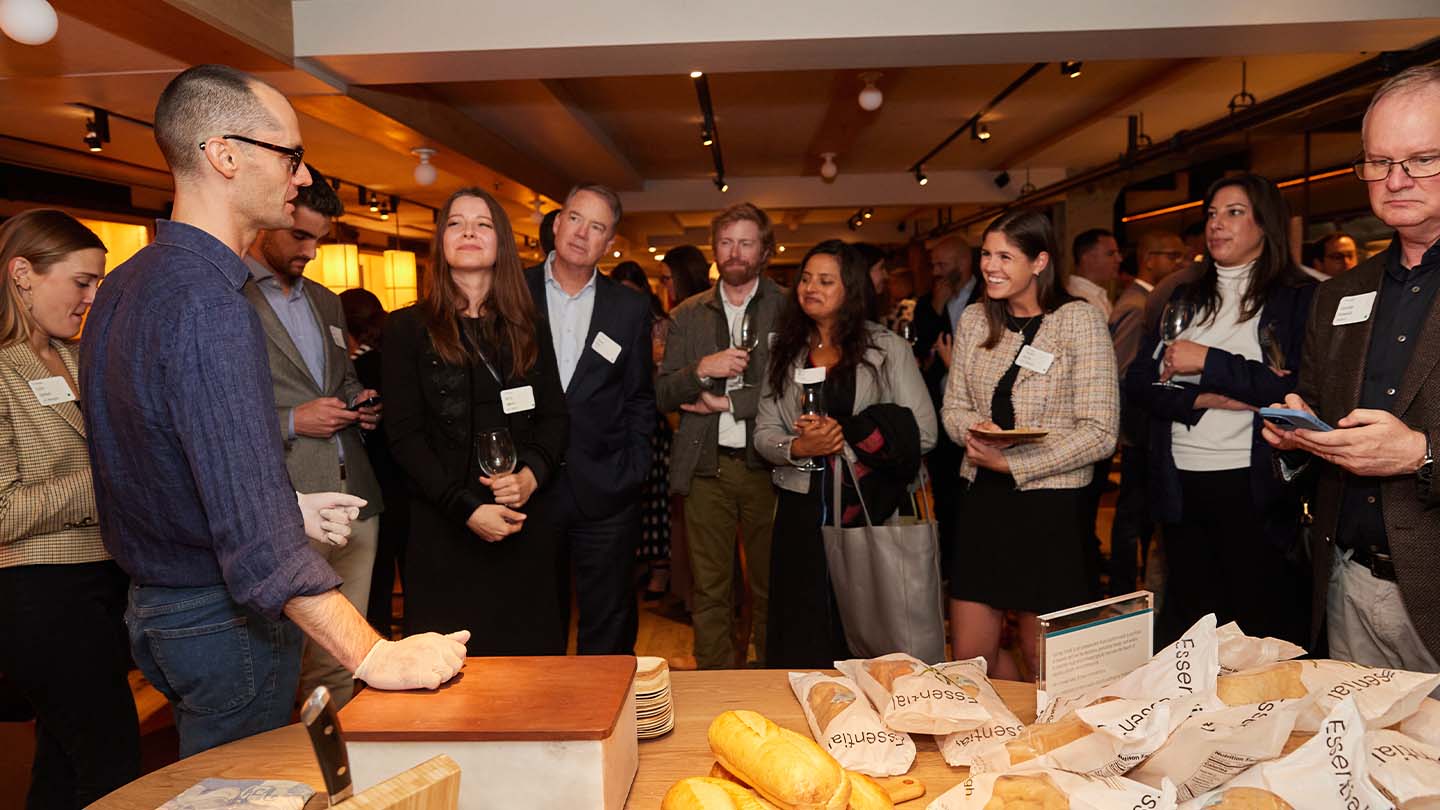
Learn more
Hide
Learn more
Hide
From dairy-free cheese and cocoa-free chocolate to mushroom-based proteins and beanless coffee, recent technology advancements are paving the way for the sustainable food and AgTech industries. In our Q4 newsletter, we share the trends we’re tracking in the space, as well as what we’ve been up to since our last quarterly update on U.S. climate policy.
In September, the Green Economy Banking team participated in several exciting Climate Week NYC events. The week was full of momentum around various green economy sectors, including battery technology, food tech and renewable energy.
The creativity, discovery and intense demand around green energy are exciting. But we’re also faced with headwinds, including uncertainty from policymakers on where the green economy should go next.
“There are a lot of things that we, as a bank, can control, but there are things that we can’t. We’re focused on what we can control—facilitating capital.”

Heather Zichal
Global Head of Sustainability
In this update, we also feature a video introduction to Kelly Belcher, Head of Climate Tech at J.P. Morgan, and recent client highlights and relevant insights from J.P. Morgan thought leaders.
Key trends transforming AgTech and the sustainable food industry
AgTech trends: Robotics and AI
Extreme temperatures and drastic weather patterns have a profound impact on agriculture. With more frequent forest fires, droughts, hurricanes and floods, U.S. agriculture will need to adapt to ensure production meets consumers’ food demands.
“AgTech companies are seeing two problems: Changing weather patterns are affecting crop yield, and the companies are not able to distribute their crops across the world to feed people who need it,” said Kelly Belcher, Head of Climate Tech at J.P. Morgan. “The solutions that we see are in response to those two concepts.”
According to the Environmental Protection Agency and the U.S. Department of Agriculture, research and innovations are underway, accelerating growth of the AgTech industry projected for the next few years. In a globalized market, food distribution is a unique challenge and opportunity. AgTech has become a champion for ingenuity, modernizing growing methods, supply chains, storage and sustainability. And the goal of AgTech, much like a recent innovation agenda put forth by the USDA, is to increase agricultural production while reducing the environmental impact.
Some of these major agricultural innovations feature robotics and AI. “Robotics are helping farmers produce more with less,” Belcher said. “Artificial intelligence is also helping farmers enhance crop yields and track weather patterns to help put more food on the table.”
Protein, price and taste: What’s driving sustainable food industry trends
Within the sustainable food industry, three key factors of consumer demand are shaping the future of production. As part of Climate Week NYC, we hosted an event for founders of sustainable food companies to showcase their products and demonstrate how they’re meeting that demand.

Grant Kettering, co-founder of Spring Foods, presents to a group at Green Economy Sustainable Food Showcase
Protein
We’re seeing major food tech innovation in protein.
“We work with entrepreneurs and founders who are producing alternative protein products, like plant-based or lab-grown proteins,” Belcher said.
J.P. Morgan is keen on helping this space grow.
“If we can help food tech investors and founders create business models for alternative proteins, we can help feed people across the world in a more efficient manner and help decarbonize our distribution system,” Belcher said.
Price
Food costs have risen significantly over the past few years; in 2022, food prices increased 9.9% year over year, a rate that hadn’t been experienced since 1979.
“Most consumers are not going to pay more for certain foods just because they are produced more efficiently,” said Eric Cohen, Head of Green Economy Banking at J.P. Morgan. “When more sustainable products can compete with traditional products on cost, that eliminates one key variable in the consumer evaluation process.”
Voyage Foods is a company that’s developing climate- and allergen-friendly food solutions at an affordable price. Its first three product offerings are cocoa-free chocolate, bean-free coffee and nut-free spreads.
“We focused on our product being accessible to as many people as possible,” said Kelsey Tenney, vice president of Research and Development and founding team member at Voyage Foods. “It had to be at a low price point and taste really good.”
Taste
Above all, founders in the foodtech industry know that consumers have discerning palates.
“One thing we've learned over our five and a half years is that only a very small group of consumers actually make decisions based on sustainability,” said Michael Fox, co-founder and CEO of Fable Food Co. “In our space, people do want to eat sustainably, but they won't compromise on taste or price.”
Fable Food is reimagining mushrooms as a tasty protein.
“We want to have a product that tastes amazing, is reasonably priced and is healthy,” Fox said. “It just happens to be a very sustainable product.”
Employee spotlight
Meet Kelly Belcher, Head of Climate Tech at J.P. Morgan, whose team uses decades of experience in the sustainability ecosystem to help companies navigate the next era of the industry. Learn more about Belcher’s expertise in our video.
Name: Kelly Belcher
Title: Head of Climate Tech, North America
Location: Houston, Texas
Years of experience: 17
Client highlights
J.P. Morgan clients showcase innovation across the green economy.
SB Energy
SB Energy (SBE) is a utility-scale solar, energy storage and technology platform. Operating across the U.S., SBE provides flexible renewable energy at scale. J.P. Morgan recently helped SBE close an important loan, allowing it to expand. We also provide SBE service through our tax-oriented investments and investment banking teams.
Aspen Power
Harnessing the power of the sun is a cornerstone of renewable energy and carbon transition efforts. But making that technology accessible to underserved communities is what Aspen Power hopes will transform global energy. Watch the video to learn how Aspen Power is working to create a future where all communities can benefit from clean energy.
Insights
Here is some recent thought leadership from J.P. Morgan experts on climate, sustainability and the innovation economy.
- How to invest into a multi-trillion megatrend (article)
- How millennials could change the future of sustainable investing (article)
- 2024 climate report (research)
- The food of tomorrow (infographic)
- The future of food is coming fast (article)
- The future of water resilience in the U.S. (video)
- A guide to seed funding for startups (article)
Learn more
Contact the Green Economy Banking team to learn more about the ways we can help your company achieve its goals. Stay up to date with the latest news and insights by signing up for our quarterly update below.
JPMorgan Chase Bank, N.A. Member FDIC. Visit jpmorgan.com/commercial-banking/legal-disclaimer for disclosures and disclaimers related to this content.







